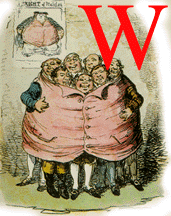
hen we are told that the distinguishing merit of such poetry as we find in Keats's “Ode on a Grecian Urn” is that it gives us, of all gifts in the world, the expression of a moral idea comparable with the gravest and the deepest utterances of Shakespeare and of Milton, we begin to perceive, or at all events we begin to suspect, that Mr. Arnold's excursive studies in theology have somewhat infected him with the theologian's habit of using words and phrases in a special and extranatural sense which renders their message impervious, their meaning impene- trable, to all but the esoteric adept. “A criticism of life’ becomes such another term or form of speech as ‘prevenient grace,’ or ‘the real presence,’ or the ‘double procession of the Holy Ghost:’ if, Hamlet-like, we consider too curiously what it may mean, the reverent reader may haply find himself on the high road to distraction, the irreverent will too probably find himself on the verge of laughter. A certain criticism of life, a certain method or scheme of contemplation, a devotion to certain points of view and certain tones of thought, may unquestionably be discerned in the highest work of such poets as Milton, Wordsworth, and Shelley, in the past ; in our own days, of such poets as Lord Tennyson, Mr. Browning, and Mr. Arnold himself But how this fact can possibly be shown to imply that it is this quality which gives them rank as poets; and how the definition of this quality can possibly be strained so as to cover the case of Keats, the most exclusively aesthetic and the most absolutely non-moral of all serious writers on record ; these are two questions to which the propounder of such postulates may surely be expected to vouchsafe at least some gleam of a solution, some shadow of a reply. [66-67; emphasis added]
Mr. Arnold has at once a passion and a genius for definitions. It is doubtless good to have such a genius, but it is surely dangerous to have such a passion. All sane men must be willing to concede the truth of an assertion which he seems to fling down as a challenge from the ethical critic to the aesthetic — that a school of poetry divorced from any moral idea is a school of poetry divorced from life. Even John Keats himself, except in his most hectic moments of sensuous or spiritual debility, would hardly, I should imagine, have undertaken to deny this. What may reasonably be maintained is a thesis very different from such a denial; namely, that a school of poetry subordinated to any school of doctrine, subjugated and shaped and utilized by any moral idea to the exclusion of native impulse and spiritual instinct, will produce work fit to live when the noblest specimens of humanity are produced by artificial incubation” [68].
Bibliography
Swinburne, Algernon Charles. “Wordsworth and Byron” in Miscellanies. London: Chatto & Windus, 1886. 271-302. Internet Archive online version of a copy in the University of Toronto Library, Web. 5 April 2020.
Last modified 5 April 2020